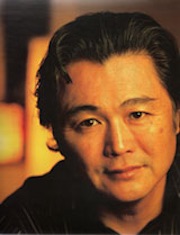By Nick A. Cohen
Three Phi Beta Kappa members were recently selected as finalists for the 2019 Minnesota Book Awards, one of Minnesota’s most competitive literary awards.
Founded in 1988, the Minnesota Book Awards, organized by the Friends of the Saint Paul Public Library, recognize great work produced by Minnesotan writers, illustrators, artists, and publishers. Awards are presented for the following genres: Children’s Literature, General Nonfiction, Genre Nonfiction, Memoir and Creative Nonfiction, Middle Grade Literature, Minnesota Nonfiction, Novel and Short Story, Poetry, and Young Adult Literature.
Among this year’s finalists are A Stranger’s Journey: Race, Identity, and Narrative Craft in Writing by David Mura (ΦBK, Grinnell College), nominated in the category of General Nonfiction; The Voice Inside by Brian Freeman (ΦBK, Carleton College), nominated in the category of Genre Fiction; and The Key to Everything by Pat Schmatz (ΦBK, Michigan State University), nominated in the category of Middle Grade Literature.

David Mura is a poet, educator, and author of ten books in genres ranging from fiction to memoir, poetry to literary essays. His latest, A Stranger’s Journey, is a series of essays that advocates for a “more inclusive and expansive definition of craft in creative writing, particularly concerning the issues of identity and race,” he explained. Much of Mura’s work has explored this theme, which he has been investigating in himself since his undergraduate years.
As an English major at Grinnell, Mura recalled: “I read through the Anglo-American literary canon as it was defined at the time—that is, I read only white authors. This gave me a basic understanding of literature, but none of those white authors provided me with a language to talk about race or my own identity.”
It wasn’t until his late 20s that Mura began to find a language that could describe his experience as a Japanese American. Much of his work since has focused on exploring his identity and how that identity interplays with his authorship.
In terms of his education, Mura explained that he feels conflicted about the literary tradition he was educated in. “Of course I couldn’t have gotten to where I am now without the excellent education I received at Grinnell…[but] there were limitations,” he noted, referring to the exclusively Anglo-American canon that he read as an undergraduate student. “So my new book both comes out of and is a reaction against my liberal arts education.”
Now an educator as well as an author, Mura takes this critical perspective to his teaching, with the purpose of instilling a perpetual love of learning that will allow him and his students to continually push themselves. “There should never be an end to learning,” he said. “We all have pockets of ignorance we need to address; we all need to work to catch up.”
And his advice to do so? Read everything, never be afraid to make mistakes, especially when those mistakes are the result of creative risks, trust your intuitions and connect with your emotional side along with your logical side. And for writers in particular, Mura highlights the aphorism from William Stafford that he always follows: the key to writer’s block is to lower your standards.

Brian Freeman, the author of 17 books, writes psychological thrillers. “The drama in my books,” he described, “emerges out of the emotions, secrets, and backgrounds of the characters.” In other words, he crafts character-driven thrillers, where the twists and turns in the pages reflect the intricacies and suspense of real life.
To inspire these emotional plot twists, Freeman turns to the stories of his readers. “One of the benefits of my job is that I…meet a lot of different people with stories to tell…stories of resilience, courage, grief, failure, and hope,” he explained. By drawing on the experiences of his readers, Freeman is able to spin thrilling tales that everyone can relate to, with their origins in the emotions that we all share.
Accessing and understanding the stories of his readers is not always an easy or straightforward task. Fundamentally, it takes a curiosity in others and an openness to listen that Freeman says is rooted in his liberal arts education. “You have to be interested in different people and different topics and ideas,” he recounted. “That’s the heart of a liberal arts education. The exposure you get in college to the diversity of this world stays with you the rest of your life.”
Perhaps what he did not learn from his education, yet nevertheless is essential to his writing process, is confidence in the storyline. “I usually remind aspiring writers that 100% of unwritten books have never been published,” Freeman instructed. “Writing a book is as much a psychological battle as anything else.” The path to victory? Relentless determination and a desire to listen to, and express, all of the complex stories that the world has to tell.

Pat Schmatz is a celebrated children’s author with six published books. She had long wanted to write children’s literature, having first been inspired by S.E. Hinton’s The Outsiders.
At the core of her books is a feeling, one which attaches to a character and that is intended to resonate with readers. “I want to say to kids who have that feeling: you are not alone,” Schmatz explained.
Identifying and tapping into those feelings comes through observation, a skill she learned in part through education. Schmatz traces her development as a writer to three courses in particular—in English, philosophy, and creative writing.
One of these was a high school English class in which the main assignment was to write a weekly series of observations. “Those writing assignments are what started to teach me to really start paying attention,” Schmatz recounted, adding that much of those observations focused on herself and her surroundings.
A college course on the philosophy of feminism provided a new lens through which to observe societal and institutional structures. Community college courses on the craft of writing also helped her learn from the experiences of others and to weave together observations about the self, society, and others to write books that connect with readers on an emotional level, always making sure that the feeling stays central to the work.
Alongside this is a passion for the craft of writing and a commitment to her readers, children and adults alike. Schmatz is committed to writing authentically, staying true to her mantra that “if you want to write fiction, you have to really go where your heart is.”
Winners of this year’s Minnesota Book Awards will be announced at a public ceremony in St. Paul on April 6.
Nick A. Cohen (ΦBK, Carleton College) recently completed his bachelor’s degree in international relations with a minor in European studies. Carleton College is home to the Beta of Minnesota chapter of Phi Beta Kappa.




